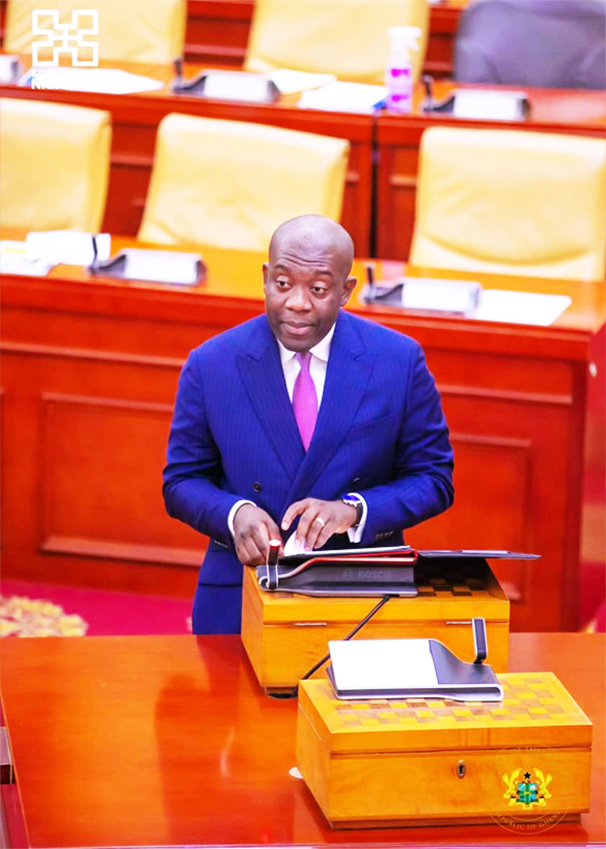A statement issued by the Minister for Information, Kojo Oppong Nkrumah, announcing the directive from President Akufo-Addo to the Minister for Finance, Ken Ofori-Atta, to seek support from the International Monetary Fund (IMF) has been met with divergent views.
Whilst some industry experts think the decision should have been taken long time ago, others also think the IMF support is not necessary and that the government could have fallen on the Central Bank to finance specific projects dear to the heart of the nation, without necessarily creating any inflation.
There are yet others who are also contending that the government has mismanaged the economy, resulting in her decision to seek support from the Breton Woods Institution.
But the Minister for Information, who also speaks for the government, has dismissed the accusation of government mismanaging the national economy.
Speaking to journalists in Accra, Mr Kojo Oppong Nkrumah, who is an Accountant, Journalist and a Lawyer contended that the issue at stake has absolutely nothing to do with mismanagement of the economy and that, it rather hinges on the current global crisis emanating from the Covid-19 pandemic and the Ukraine-Russian war.
He admitted that the Akufo-Addo government had made a vow never to go back to the IMF after the previous National Democratic Congress (NDC) government, led by President John Mahama had done so, but explained that at the time those promises were made, the issue of Covid-19 and Ukraine-Russia war, which has hit hard on almost all the economies in the world had not arisen.
The information minister regretted that when the Akufo-Addo government started rebuilding its depleted buffers and reserves after the Covid-19, which struck the nation in 2020, the Russian-Ukraine war, which was never anticipated also kicked in at the time the buffers had already been expended on Covid-19.
“First, this is not domestically induced, but rather an externally induced crisis. The country has been negatively impacted by the twin effects of the Covid-19 pandemic and the Russia-Ukraine war. This situation has been exacerbated by the adverse implication of global supply chain disruptions causing our economy to be in distress,” the Minister said.
He explained that for government to be able to respond appropriately, it needs to tap into the cheapest and easily available option for mitigating these crises, which is the IMF.
The Minister said this has become even more important as domestic measures to contain the impact of the second crisis on the country’s fiscals are yet to yield optimal results.
He assured Ghanaians of safeguarding the country’s interest. He said the current administration has a proven track record of putting Ghana first and will do anything it takes to make sure the country does not come up short in its negotiation with the IMF.
Background
Prior to the onslaught of the crises, Ghana witnessed an average annual Gross Domestic Product (GDP) growth rate of 7 per cent in 2017, 2018, 2019 and part of 2020, when the economy was then generally acknowledged as one of the fastest growing in the world.
Then came Covid-19 pandemic that slowed the country’s economic momentum. The country made a gradual rebound with a good economic outlook in 2021 in the short to medium term, contingent on an increase in demand for Ghana’s exports, improved business confidence and successful implementation of the Ghana Covid–19 Alleviation and Revitalisation of Enterprise Support program.
Ghana ended 2021 with 5.4 per cent in growth.
However, the Russia-Ukraine war further derailed the country’s growth causing unfavorable increases in fuel prices, shortage of fertilizer and essential agro-processing inputs with its associated inflationary pressures.
Ghana is not the only African country seeking support from the IMF on the back of the adverse impact of COVID-19 on the global economy.
Other countries that have gone for support include; Kenya, Egypt, Cote D’Ivoire, Ethiopia and Morocco.
By Wilhelmina Love Abananave









